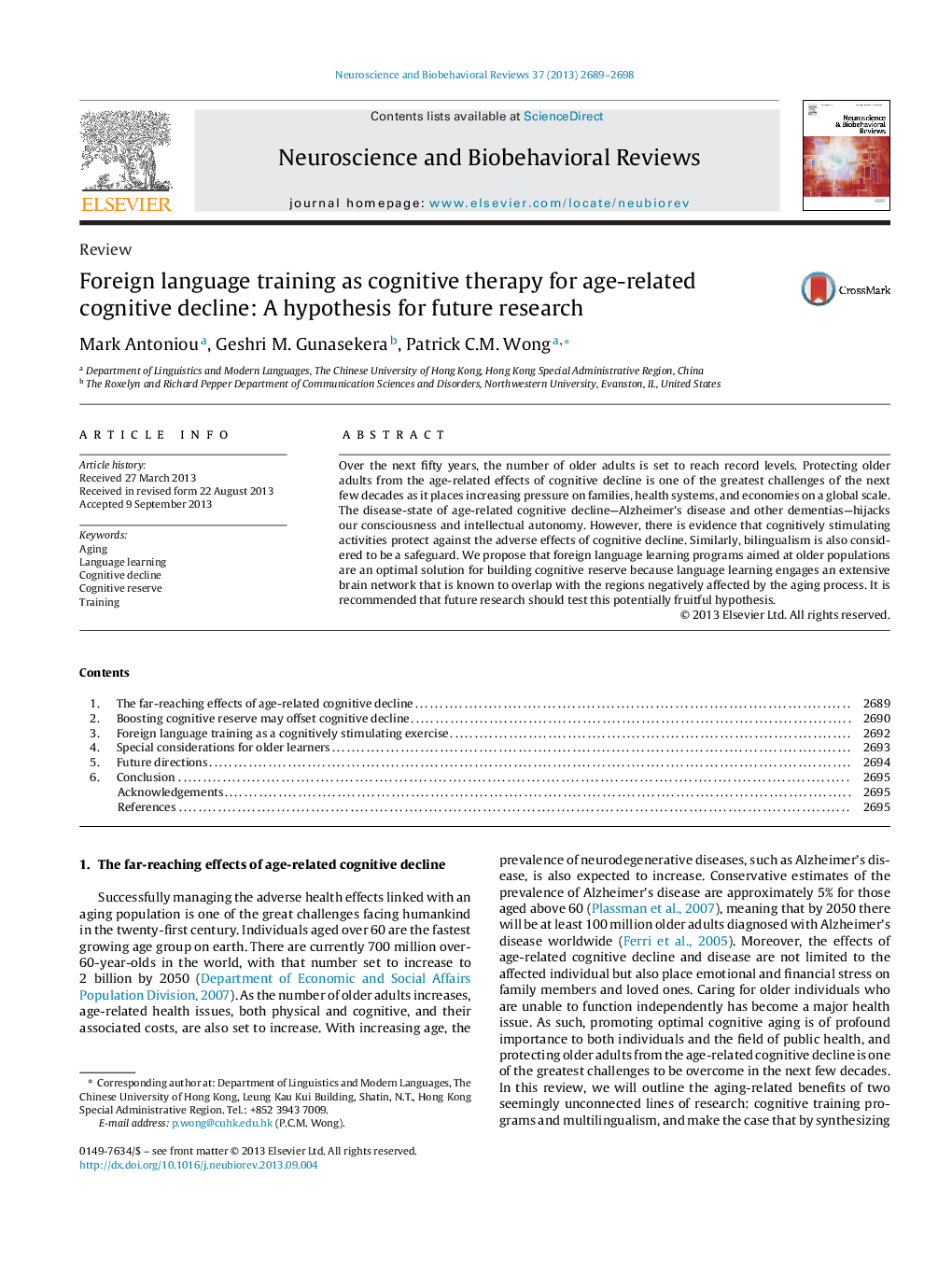| Article ID | Journal | Published Year | Pages | File Type |
|---|---|---|---|---|
| 10461694 | Neuroscience & Biobehavioral Reviews | 2013 | 10 Pages |
Abstract
Over the next fifty years, the number of older adults is set to reach record levels. Protecting older adults from the age-related effects of cognitive decline is one of the greatest challenges of the next few decades as it places increasing pressure on families, health systems, and economies on a global scale. The disease-state of age-related cognitive decline-Alzheimer's disease and other dementias-hijacks our consciousness and intellectual autonomy. However, there is evidence that cognitively stimulating activities protect against the adverse effects of cognitive decline. Similarly, bilingualism is also considered to be a safeguard. We propose that foreign language learning programs aimed at older populations are an optimal solution for building cognitive reserve because language learning engages an extensive brain network that is known to overlap with the regions negatively affected by the aging process. It is recommended that future research should test this potentially fruitful hypothesis.
Related Topics
Life Sciences
Neuroscience
Behavioral Neuroscience
Authors
Mark Antoniou, Geshri M. Gunasekera, Patrick C.M. Wong,
